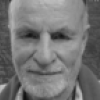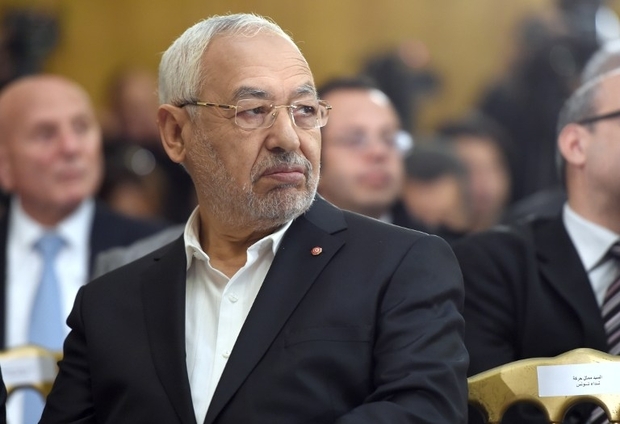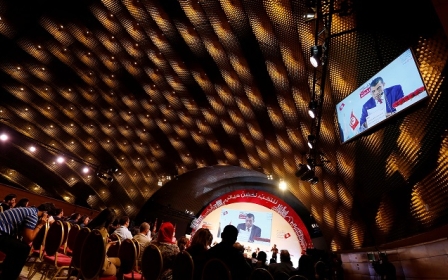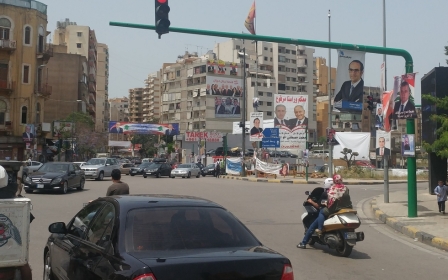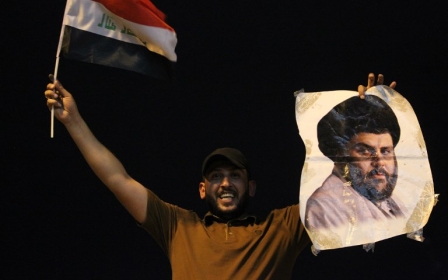The false dichotomy between 'Islamist' and 'secular'

While the 2011 Arab Spring tremors in Tunisia and Lebanon are subsiding, two elections have given a sense of the current state of political forces in the region, in very different contexts.
Both the municipal vote in Tunisia and the legislative election in Lebanon this month resulted in victories for "Islamist" parties, with Ennahda and the Hezbollah-Amal alliance each taking around a third of the vote.
In addition, there was a good showing during Iraq's legislative elections for the list of Muqtada al-Sadr, a strong Shia figure whose political identity includes the mobilisation of the religious lexicon.
Support for Hezbollah
In spite of these convergences, the importance of which have been underscored by the near-silence of the mainstream Western press, we must not rush to generalisations.
First of all, as we must never tire of reminding ourselves, from Tunisia to Lebanon to Iraq, the term "Islamist" refers to realities that are too specific to make it a truly operational category.
Secondly, in distinct contexts in Lebanon and Iraq, the community dimension gives the voting demarcation mechanism - and thus "Islamist" victories - a potentially very different meaning than in countries such as Tunisia or Morocco.
The dynamics of the 2006 alliance between Michel Aoun’s predominantly Christian Free Patriotic Movement and Hassan Nasrallah’s almost exclusively Shia Hezbollah continue to produce effects
In Lebanon, the dynamics of the 2006 alliance between Michel Aoun's predominantly Christian Free Patriotic Movement and Hassan Nasrallah's almost exclusively Shia Hezbollah continue to produce effects.
The lists supported by Hezbollah have indeed received the support of significant fringes of the Sunni electorate. But the community reflex (Shia, Sunni, Christian or Druze) clearly continues to play a central role in voters’ choices. An "Islamist" vote can thus mask a more banal "Shia" vote. Because, as political scientist Nicolas Dot-Pouillard points out, "the lists coming from 'civil society' challenging the Lebanese confessional system are far from having broken through".
Even if those who supported the Hezbollah-Amal list could elect other Shia candidates, the defence-of-community identity, promoted with particular effectiveness by Hezbollah and its ally Amal, remained one of the determining criteria of their choice.
The price Ennahda paid
In Tunisia, Ennahda's relative “victory” raises a radically different issue.
Above all, its relative success shows that, for the party that won the Constituent Assembly in 2011, the fact of having become the minority ally of a party (Nidaa Tounes) that is more or less a direct heir to the deposed regime of Zine el-Abidine Ben Ali, was not enough to discredit Ennahda.
The reality is that in Tunisia, in a competition for local elections in the post-revolution political landscape, Ennahda capitalised little on the record of its participation in the national unity government.
More likely, the party's success lies in the fact that not only have its activists been spared a return to prison, but the entire country has been spared the turbulence of a counter-revolution similar to what has unfolded in Egypt or, worse still, Libya, Syria or Yemen.
Deep divisions
Of course, the "Islamist victory" also comes from the deep divisions afflicting the main party in power and the remarkable weakness of the alternative opposition - of the left in particular.
Unlike Ennahda, the misnamed Popular Front - a Tunisian political coalition comprising 12 political parties and left-wing, nationalist and environmentalist NGOs - was incapable of asserting its presence in each of the Tunisian constituencies.
Like Muqtada al-Sadr – the Iraqi pioneer of cross-religious openness, to the point of refusing to support Syria's Bashar al-Assad or risking to show himself with Saudi Arabia's Mohammad bin Salman - Ennahda finally managed to avoid the trap of enclosure. Almost half of its lists, which are also largely open to women, have accepted independent candidates from outside its ranks. And the party that its founder declines to call "Islamist" even went so far as to be represented in Monastir by a Jewish candidate.
To better blur the old lines, it is enlightening to note that the debate which, on the eve of Ramadan, pitted Nidaa Tounes against Ennahda for the town hall of the capital was due in particular to the fact that the "anti-Islamist" party, Nidaa Tunis, was reluctant to entrust a woman, Souad Abderrahim, with the symbolic post of "sheikh of the city".
Credibility versus ideology
We note from the Lebanese and Tunisian cases that in the Maghreb and the Middle East, when spaces of freedom remain, it is indeed the political Islam lexicon that remains the most functional to date - even in different countries, and in the service of different political strategies.
If Islamists are no longer necessarily elected for "ideological" reasons, they are more and more often elected, more banally, for their mere "credibility" as actors.
Thus, despite being worn down by the exercise of power, Hezbollah remains the leading political force. The party expresses the expectations of the Shia (and at least a fringe of the Sunni and Christian) Lebanese population, and it is indeed Ennahda that performs best in Tunisia. Left-wing forces - noisy when it comes to manipulating invective against Islamists – are brilliant here with their silence and inaction.
In Europe, political actors still need to understand this reality. They must also abandon the old, over-simplified dichotomy between "Islamists" and "secular" or, even worse, "Islamists versus modernists", to improve their reading of the political scene in the Arab world.
- Francois Burgat is a political scientist. He is an emeritus research director at the CNRS (IREMAM Aix-en-Provence). He was director of the Ifpo (French Institute for the Near East) between May 2008 and April 2013 and the CEFAS (French Centre for Archaeology and Social Sciences in Sanaa) from 1997 to 2003. He is a specialist in political Islam whose latest book is Comprendre l’islam politique : une trajectoire de recherche sur l’altérité islamiste 1973-2016 (La Découverte).
The views expressed in this article belong to the author and do not necessarily reflect the editorial policy of Middle East Eye.
Photo: Hezbollah leader Hassan Nasrallah in Beirut on 4 May 2018, just before Lebanon’s legislative elections (AFP)
This story originally appeared in the MEE French edition and was translated by Reda Zaireg
New MEE newsletter: Jerusalem Dispatch
Sign up to get the latest insights and analysis on Israel-Palestine, alongside Turkey Unpacked and other MEE newsletters
Middle East Eye delivers independent and unrivalled coverage and analysis of the Middle East, North Africa and beyond. To learn more about republishing this content and the associated fees, please fill out this form. More about MEE can be found here.


